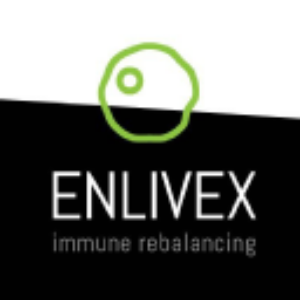Sheba Medical Center and Enlivex Announce Dosing of the First Patient in Phase I/II Trial Evaluating Allocetra Combined with Chemotherapy in Patients with Peritoneal Metastases Arising from Solid Cancers
Rhea-AI Summary
Enlivex Therapeutics Ltd. (Nasdaq: ENLV) has initiated its first Phase I/II clinical trial for Allocetra™, an innovative macrophage reprogramming therapy targeting peritoneal metastases in solid cancer patients. This trial, supported by Sheba Medical Center, aims to evaluate the safety and preliminary efficacy of Allocetra™ combined with standard chemotherapy. Peritoneal cancer has a low survival rate, making new treatments critical. The trial will assess dose escalation and monitor adverse events, with the potential to redefine treatment options for patients with limited responses to existing therapies.
Positive
- Initiation of first Phase I/II trial for Allocetra™, indicating progress in cancer therapy development.
- Sheba Medical Center's involvement lends credibility and expertise to the trial.
- Potential to address unmet medical needs for patients with peritoneal metastases.
- Innovative approach using PIPAC technology may enhance therapeutic delivery and efficacy.
Negative
- Peritoneal metastases have fundamentally poor prognosis, evidenced by median survival rates of only 2.9 to 6.9 months for various cancers.
- Standard SOC chemotherapy currently shows only modest survival benefits, highlighting the challenge that Allocetra™ seeks to overcome.
News Market Reaction – ENLV
On the day this news was published, ENLV gained 1.97%, reflecting a mild positive market reaction.
Data tracked by StockTitan Argus on the day of publication.
- First clinical trial of Allocetra™ in patients with cancer builds upon promising preclinical studies demonstrating its broadly applicable immunotherapeutic effects in solid tumor models
- Sheba Medical Center was recently selected as one of the top ten hospitals in the world by Newsweek Magazine for the fourth year in a row
Nes-Ziona, Israel, July 06, 2022 (GLOBE NEWSWIRE) -- Enlivex Therapeutics Ltd. (Nasdaq: ENLV, the “Company”), a a clinical-stage macrophage reprogramming immunotherapy company targeting diseased macrophages in patients with sepsis and solid tumors, today announced that the first patient has been dosed in a Phase I/II clinical trial evaluating Allocetra™ combined with chemotherapy in patients with peritoneal metastases arising from solid cancer.
Peritoneal cancer, whether originating from a primary tumor within the peritoneum or from a metastatic tumor elsewhere in the body, is a terminal disease with a poor prognosis. Patients with peritoneal metastases are in urgent need of novel treatment options, as standard-of-care (SOC) chemotherapy currently provides only modest survival benefits. The median survival of patients with peritoneal metastases differs based on the location of the primary tumor but is frequently poor, with survival rates of 2.9 months, 6.5 months, and 6.9 months reported for cancers of pancreatic, gastric, and colorectal origins, respectively.
Prof. Aviram Nissan, M.D., Head of the Department of General and Oncological Surgery at Sheba Medical Center and Principal Investigator of the trial commented: “The patients are operated using the Pressurized Intra-Peritoneal Aerosol Chemotherapy (PIPAC) technology, which allows for efficient insertion of therapeutics directly to the peritoneum. We hope that the combination of chemotherapy and Allocetra™, a next-generation cell therapy in development for oncological indications, will generate a breakthrough in the treatment of peritoneal metastases, which are not treatable in most patients with anti-cancer drugs available today. We are eager to test this new combination with the hope of changing the lives of patients with peritoneal metastases.”
Mohammad Adileh, M.D., Attending Surgical Oncologist, Department of Surgery and Surgical Oncology – Surgery C, and a Co-Investigator in the trial stated: “Together with my team, I performed a ground breaking procedure in a patient with abdominal metastasis, combining a novel drug delivery system, PIPAC, with Allocetra™, the development-stage macrophage-reprogramming cell therapy produced by Enlivex. I look forward to understanding the scope of the effect of Allocetra™ and its impact on the immune system in its efforts to recognize and kill malignant tumors in the abdomen. We are excited to test this combination as a new hope for patients with peritoneal cancers.”
“The initiation of our first oncology trial is a crucial moment in Enlivex’s evolution,” said Oren Hershkovitz, Ph.D., Chief Executive Officer of Enlivex. “We believe that it de-risks our pipeline with another avenue for value creation and positions us to substantially expand our addressable patient population. We look forward to the trial’s advancement and to expanding our oncology clinical program and would like to thank all those who helped achieve this important milestone.”
Prof. Dror Mevorach, M.D., Chief Scientific Officer of Enlivex commented: “We believe that Allocetra™ has strong anti-cancer potential in a novel mechanism. Preclinical data suggests that Allocetra™ rebalances macrophage populations within the tumor microenvironment into a homeostatic state that favors anti-tumoral macrophages. This, in-turn, is expected to weaken the tumor defense mechanisms that limit the efficacy of currently available therapies. With this novel mechanism of action, Allocetra™ can potentially enhance the anti-cancer activity of a broad range of drug classes across a spectrum of highly prevalent solid cancers.”
“Pro-tumor” tumor associated macrophages typically form a physical layer on top of solid cancers and induce an immunosuppressive tumor microenvironment. This promotes cancer growth and metastasis and limits the efficacy of anti-cancer agents, which ultimately contributes to poor clinical outcomes. Preclinical studies, including those that were recently featured at the American Society of Clinical Oncology (ASCO) Annual Meeting and the International Society for Cell and Gene Therapy Annual Meeting, suggest that Allocetra™ has the potential to synergistically combine with various anti-cancer agents to provide patients who do not respond well to existing FDA-approved therapies with an effective treatment option.
ABOUT THE PHASE I/II TRIAL
The Phase I/II trial is a company-sponsored, open-label, dose escalation and expansion trial that is expected to enroll a total of approximately 12 patients across four cohorts. It is designed to evaluate the safety and potential preliminary efficacy of Allocetra™ combined with SOC chemotherapy in patients with peritoneal metastases arising from solid cancer. The study will begin with two cohorts of intra-patient and intra-cohort dose escalation to determine the maximum feasible dose (MFD) of Allocetra™ in this population, followed by two additional cohorts comparing administration of Allocetra™ at the selected dose either before or after administration of SOC via a pressurized intraperitoneal aerosol chemotherapy procedure (PIPAC; a technique applied when patients are not eligible to receive the standard treatment due to a considerable tumor load, large quantities of persistent ascites, or other circumstances).
Intraperitoneally delivered Allocetra™ and SOC chemotherapy administered via PIPAC will be given to patients every six weeks. Systemic chemotherapy will also be administered per the treating oncologist's plan. The primary endpoint is the number and severity of Allocetra-related adverse events and serious adverse events during the 16-week period, starting from the first administration of study treatment. Secondary endpoints include efficacy assessments, such as best overall response rate (ORR), progression-free survival, and overall survival. Changes from baseline in macrophage and immune cell characteristics in peritoneal fluid and tissues will also be assessed as an exploratory endpoint.
ABOUT ALLOCETRA™
Allocetra™ is being developed as a universal, off-the-shelf cell therapy designed to reprogram macrophages into their homeostatic state. Diseases such as solid cancers, sepsis, and many others reprogram macrophages out of their homeostatic state. These non-homeostatic macrophages contribute significantly to the severity of the respective diseases. By restoring macrophage homeostasis, Allocetra™ has the potential to provide a novel immunotherapeutic mechanism of action for life-threatening clinical indications that are defined as "unmet medical needs", as a stand-alone therapy or in combination with leading therapeutic agents.
ABOUT SHEBA MEDICAL CENTER
The largest and most comprehensive medical center in the Middle East, Sheba Medical Center, Tel HaShomer is generating global impact through its medical care, research and healthcare transformation. Sheba's City of Health boasts an acute-care hospital, rehabilitation hospital, research and innovation hubs, medical simulation center and center for disaster response on one comprehensive campus in the center of Israel. A university teaching hospital affiliated with the Sackler School of Medicine at Tel-Aviv University, Sheba is shaping the future of healthcare, educating the next generation of care providers. Sheba serves as a true hospital without borders, welcoming patients and healthcare professionals from all over the world and consistently providing the highest-level medical care to all in need. Sheba has been ranked a top ten hospital in the world by Newsweek four years in a row (2019, 2020, 2021, 2022).
ABOUT ENLIVEX
Enlivex is a clinical stage macrophage reprogramming immunotherapy company developing Allocetra™, a universal, off-the-shelf cell therapy designed to reprogram macrophages into their homeostatic state1. Resetting non-homeostatic macrophages into their homeostatic state is critical for immune system rebalancing and resolution of life-threatening conditions. For more information, visit http://www.enlivex.com.
Safe Harbor Statement: This press release contains forward-looking statements, which may be identified by words such as “expects,” “plans,” “projects,” “will,” “may,” “anticipates,” “believes,” “should,” “would”, “could,” “intends,” “estimates,” “suggests,” “has the potential to” and other words of similar meaning, including statements regarding expected cash balances, market opportunities for the results of current clinical studies and preclinical experiments, the effectiveness of, and market opportunities for, ALLOCETRATM programs. All such forward-looking statements are made pursuant to the safe harbor provisions of the Private Securities Litigation Reform Act of 1995. Investors are cautioned that forward-looking statements involve risks and uncertainties that may affect Enlivex’s business and prospects, including the risks that Enlivex may not succeed in generating any revenues or developing any commercial products; that the products in development may fail, may not achieve the expected results or effectiveness and/or may not generate data that would support the approval or marketing of these products for the indications being studied or for other indications; that ongoing studies may not continue to show substantial or any activity; and other risks and uncertainties that may cause results to differ materially from those set forth in the forward-looking statements. The results of clinical trials in humans may produce results that differ significantly from the results of clinical and other trials in animals. The results of early-stage trials may differ significantly from the results of more developed, later-stage trials. The development of any products using the ALLOCETRATM product line could also be affected by a number of other factors, including unexpected safety, efficacy or manufacturing issues, additional time requirements for data analyses and decision making, the impact of pharmaceutical industry regulation, the impact of competitive products and pricing and the impact of patents and other proprietary rights held by competitors and other third parties. In addition to the risk factors described above, investors should consider the economic, competitive, governmental, technological and other factors discussed in Enlivex’s filings with the Securities and Exchange Commission, including in the Company’s most recent Annual Report on Form 20-F filed with the Securities and Exchange Commission. The forward-looking statements contained in this press release speak only as of the date the statements were made, and we do not undertake any obligation to update forward-looking statements, except as required under applicable law.
ENLIVEX CONTACT
Shachar Shlosberger, CFO
Enlivex Therapeutics, Ltd.
shachar@enlivexpharm.com
INVESTOR RELATIONS CONTACT
Eric Ribner
LifeSci Advisors
eric@lifesciadvisors.com








